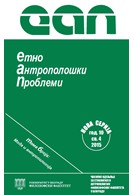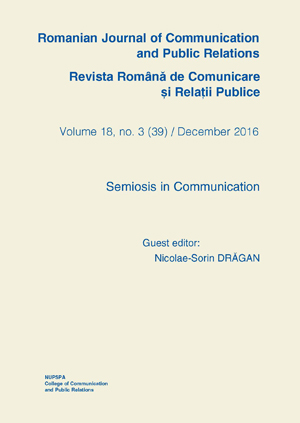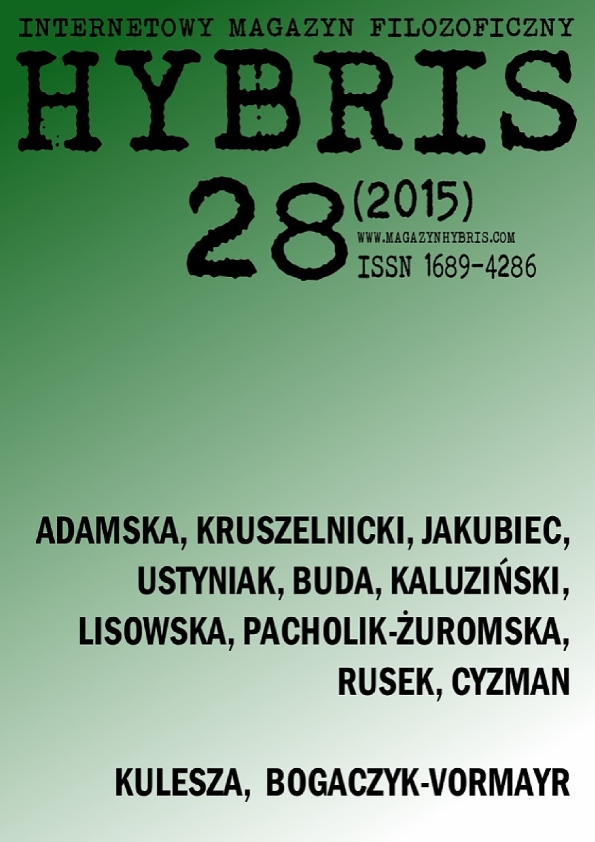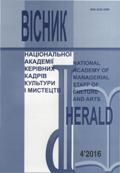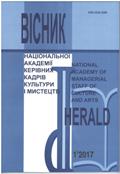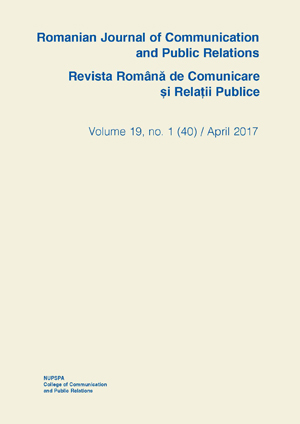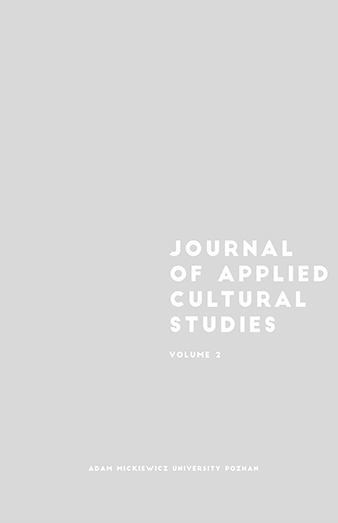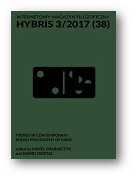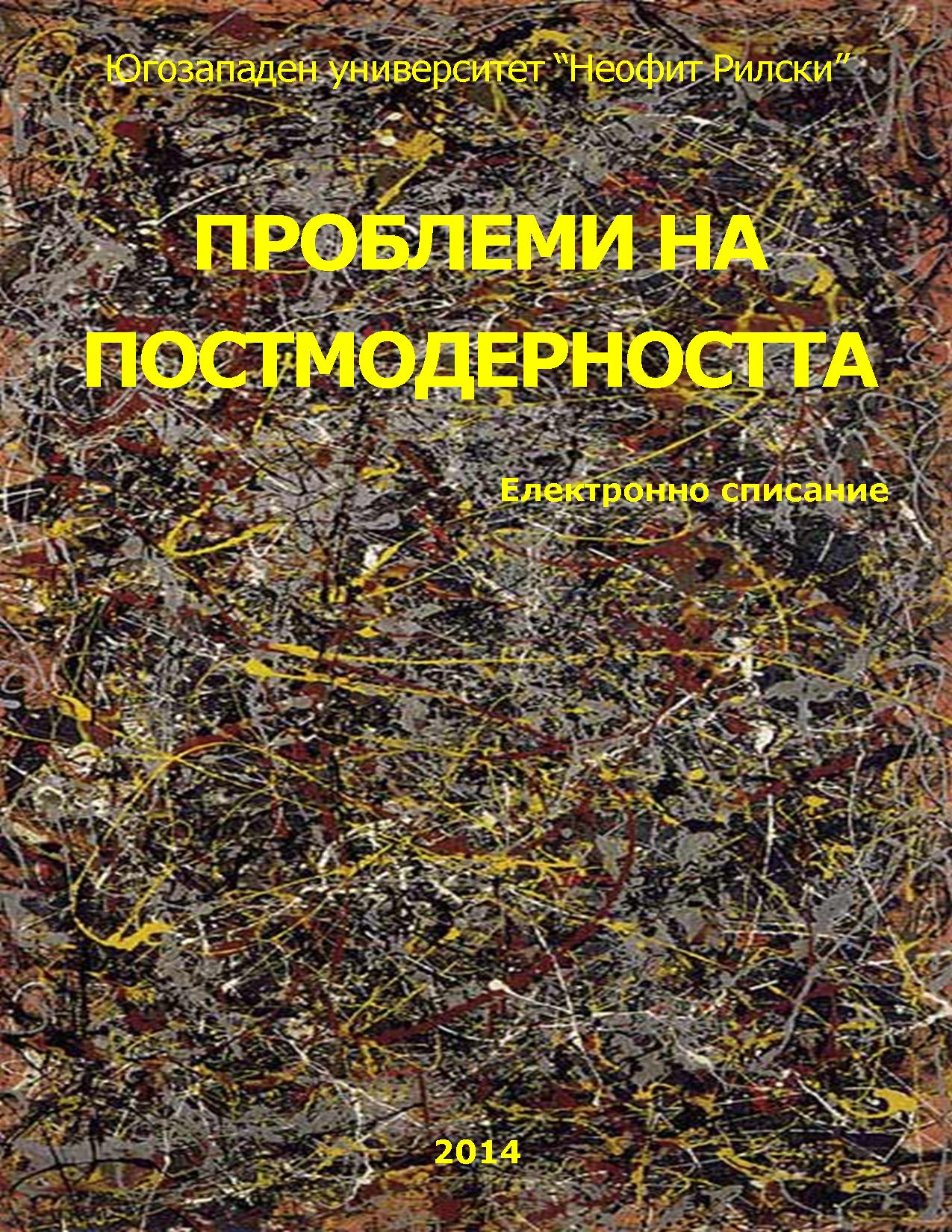Author(s): Zinaida Boiko / Language(s): Ukrainian
Issue: 2/2014
The topicality of the problem lies in studying the language of the culture as a universal form of understanding reality, which combines ideas, perceptions, images, and other semantic structures. Profound changes, occurring in the acute geopolitical situation, the contradictions in all spheres of human life, lead, in fact, to a change in the type of the culture. It is therefore important to identify ways of preserving the identity of cultures and languages.The problem of the language and the culture was studied by eminent philosophers-rationalists R. Descartes, B. Pascal, G. Leibniz, who called "basic meanings", that are genetically passed down from generation to generation, as an "alphabet of human thoughts". Description of meanings encoded in a language, classification, analysis of this alphabet is one of the main tasks of linguistics and cultural studies. Great German philosopher, linguist and cultural scientist W. von Humboldt stressed that this is a fundamental problem not only for science but also for the human existence. He also emphasized that through a variety of languages we discover the wealth of the world, human existence becomes broader for us and that any language is a hieroglyph that contains world and imagination of a human being.The main problem of the language and the culture is the problem of understanding, the problem of effectiveness of the dialogue between cultures of different epochs (diachronic aspect), as well as the dialogue between contemporary cultures (synchronic aspect). Bridge, that links cultures, is a language. The biggest difficulty of the problem of understanding lies in the translation of meanings from one language into another. It is connected with the fact that every language has a plurality of semantic and grammatical differences.Nowadays crisis of the educational idea of progress makes people look for other meanings. This search leads to the culture, the values of which cannot be learned without having a system of its languages. The language of the culture synthesizes various cultural aspects of life – social, cultural and historical, psychological, aesthetic, etc. In order to transform a life event into a cultural phenomenon, it should be transformed into the text. Understanding the language of the culture and mastering it give us freedom, ability of assessment and self-estimation, show us ways of including human being into cultural context, help to understand our place in the culture and be aware of the complex and dynamic structures of the society.The problem of classification of languages of cultures is also the focus of scientists. Unlike purely linguistic classification of languages which is mostly represented by genealogical and typological classifications, classification of languages of cultures consists of two types: 1) natural languages (English, Ukrainian, Russian, Persian, etc.) and 2) artificial languages (Ido, Volapük, Esperanto, Sol-re-sol, BASIC, etc). Of course, language of the culture is the natural language, serving all areas of human activity, including culture. And it is so despite the fact that the linguistic units of any natural language can cause a confusion of notions, as was claimed by G.-G. Gadamer (although it concerned philosophy). The main reason is prejudice, the cause of which lies in the use of words. As for culture studies, there are also problems related to misunderstanding of meanings that exist in other cultures.Nowadays the notion "globalization of cultures" that exists side by side with such concepts as globalization of English, dollar, terrorism, drugs globalization, etc, is rather widespread. But the major one is another trend – preservation of cultural identity and native language.In the context of the dialogue between cultures recently there has been a conflict of cultures. American researcher S. Huntington believes that the next war will be a war of civilizations and cultures. He also criticizes Westernization of the world and the usage of English as a global language, predicting that if in 500 years English becomes the only language in the world, it will be the greatest intellectual catastrophe of our planet.In light of these trends of the world development it is getting critical to identify cultural differences of peoples in order to understand each other, to achieve mutual recognition. The process of cultural interaction, leading to unification, causes desire of some people of cultural self-assertion and preservation of their cultural values, their language. A large number of people show their categorical rejection of cultural changes taking place in the world under the influence of globalization. They set the impermeability of own "ego" and exaggerated sense of pride for their national identity against the process of opening cultural boundaries.The scale of resistance to the merge of cultures is quite wide: from passive rejection of the values of other cultures and languages up to active action against their spread and establishment. Therefore, we are witnesses and contemporaries of many ethnic and religious conflicts, resurgence of nationalism and fundamentalist movements.Unfortunately, every language conceals an arsenal of means, inciting inter-ethnic conflicts.
More...

